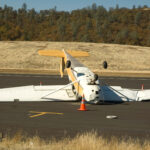The Importance of International Operations Training
International operations present a unique set of challenges and opportunities for pilots. Expanding your horizons beyond domestic airspace not only enhances your skillset but also opens a world of exciting destinations that demand a higher level of expertise. International operations training is crucial in preparing pilots to navigate these complexities safely and efficiently.
International operations training is an investment in safety, efficiency, and confidence. It equips pilots with the necessary skills to handle the diverse and sometimes unexpected challenges of flying across borders and through oceanic airspace. Here’s why this training is indispensable:
- Enhanced Navigation Skills: International routes often involve traversing vast oceans and unfamiliar territories. Training ensures pilots are adept at using advanced navigation systems and understanding global air traffic procedures.
- Effective Communication: Communication can be a significant hurdle when flying internationally due to language barriers and different communication protocols. Training helps pilots master the standardized phraseology and radio procedures necessary for clear and effective communication with foreign air traffic control.
- Regulatory Compliance: Each country has its own set of aviation regulations, which can be daunting to navigate. Training provides a comprehensive understanding of international aviation law, ensuring compliance with all necessary regulations and avoiding costly penalties.
Overcoming International Flying Challenges
Flying internationally can be daunting, with challenges ranging from complex airspace structures to varying weather patterns. International operations training prepares pilots to handle these challenges by covering:
- Airspace Differences: Understanding the intricacies of foreign airspace, including restricted areas and unique entry requirements.
- Cultural Sensitivity: Developing an awareness of cultural differences that can affect communication and operational decisions.
- Weather Variability: Learning to anticipate and respond to diverse weather patterns that may not be encountered in domestic flying.
Essential Skills and Knowledge Areas
International operations training encompasses a broad spectrum of skills and knowledge that are integral to safe and successful flights across borders. Here are a few:
- Mastery of international flight planning and routing
- Proficiency in oceanic and polar navigation techniques
- Understanding of diverse regulatory environments
- Familiarity with international customs and immigration procedures
- Skills in managing extended-range operations and fuel planning
- Competence in global communication standards and practices
Conclusion
International operations training is more than just a certification; it’s a pathway to becoming a more versatile and adept pilot. As the aviation industry continues to globalize, the ability to operate confidently in international airspace is a significant asset. By investing in this training, professional private pilots not only enhance their capabilities but also expand their aviation career horizons. Whether your goal is to explore distant lands or take on more challenging flight assignments, international operations training is the key to unlocking new opportunities in the world of aviation.









